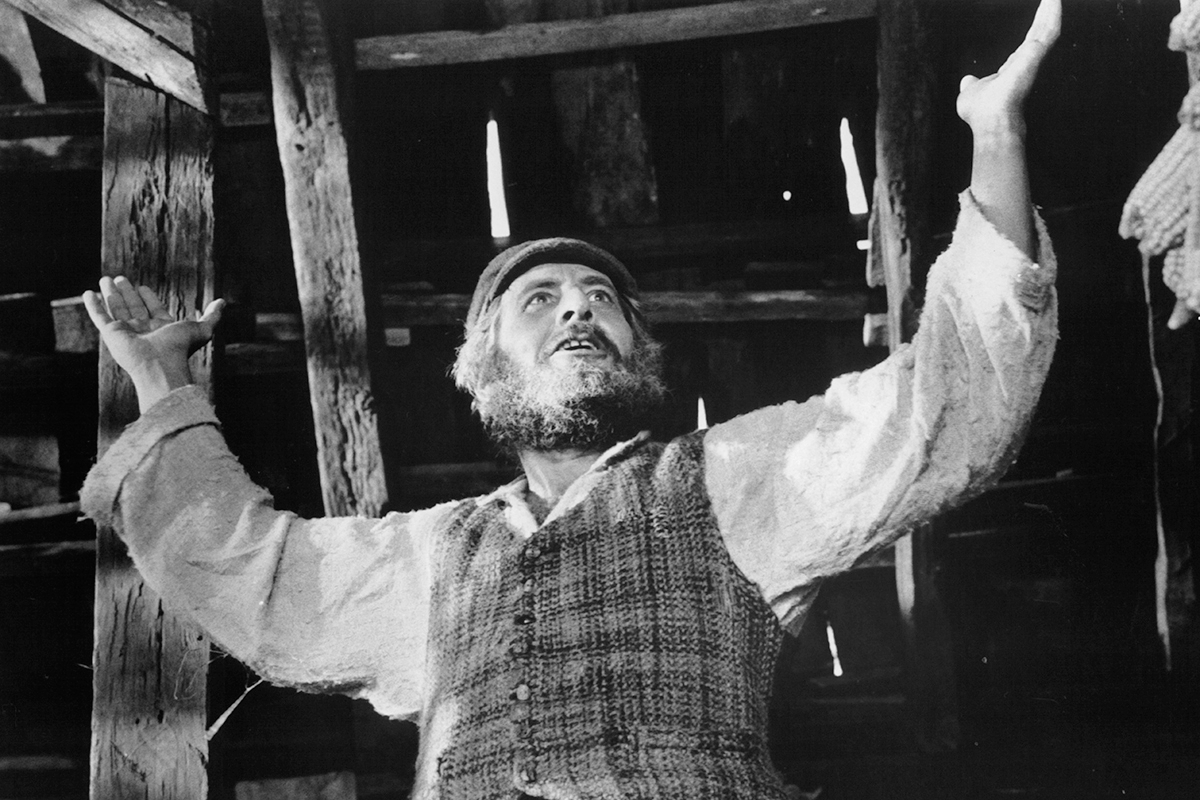It still comes as a surprise to some fans that Norman Jewison, the director of perhaps the most iconic Jewish film of all times, “Fiddler on the Roof,” was not, in fact, Jewish.
Jewison, who passed away this week at age 97 , came from a Protestant family in Canada.
With a name like Jewison, though, he got front row seats to the antisemitism that was rampant in the 1920s and ’30s in his hometown of Toronto, where Jews were banned from many spaces, antisemitic pronouncements were still par for the course and a rally in support of Nazism drew a crowd of over 10,000. Bullied with names like “Jewy” and “Jew-boy” from early childhood, and kept out of a golf club, it left in him an affinity for Jewish people and a deep understanding of antisemitism that he wouldn’t have had otherwise.
“The whole thing of carrying this name that starts out with the letters J-E-W — it affected me deeply,” Jewison once said. “One thing that really sets me off is any kind of racial prejudice or intolerance,” he added, according to a biography written by Ira Wells. “I am deeply offended by that.”
His dealings with antisemitism, along with an experience on leave from the Navy during World War II when he first travelled to the U.S. South and witnessed segregation, are the reasons why so many of Jewison’s great movies were about experiences of intolerance and racism.
When recruited to direct “Fiddler,” he sheepishly professed that he wasn’t, in fact, Jewish. But it was his experience directing films like the comedy “The Russians Are Coming, The Russians Are Coming,” Alan Arkin’s debut film which starred the likes of Theodore Bikel and Carl Reiner, and the Academy Award-winning “In The Heat Of The Night” starring Sidney Poitier, that helped him get the job.
All kinds of haphazard Jewish connections brought Jewison to that moment. Actor Tony Curtis, born Bernard Schwartz, noticed him during a television gig, allegedly telling him, “You do nice work, kid… when are you going to make a movie?” Curtis starred in Jewison’s directorial debut, “40 Pounds of Trouble.”
Jewison did a deft, masterful job directing “Fiddler,” turning the Sheldon Harnick and Jerry Bock musical into a sensitive, joyful film, one etched in all our imaginations thanks also to the booming presence of Chaim Topol. It’s a movie that’s provided Jews across the world both comfort and a source of deep connection to their heritage to this day.
Jewison treated making the movie with a special kind of reverence, immersing himself in Jewish experiences: going to Shabbat services, visiting Jerusalem and attending prayer at the Western Wall.
At the Jerusalem premiere of the film, he shook hands with Prime Minister Golda Meir. He later wrote that her approval of the movie meant more to him than any award. Jewison also encouraged fellow directors to film in Israel, though the next film that he made there ended up being his most controversial among Jewish audiences — his adaptation of the musical “Jesus Christ Superstar” was accused of spreading antisemitism.
Still, Jewison stayed firmly connected to the Jewish experience. He never changed his name, even when people in the industry urged him to, as many Jewish Hollywood stars have been urged to over the years. His last film, “The Statement,” adapted from a 1995 novel of the same name, was about a French Nazi collaborator who ordered the death of seven Jews as part of the Vichy regime, based on the real story of Paul Tovier. In 2010, Jewison got married to his second wife, Lynne St. David, under a chuppah.
Beyond “Fiddler,” Jewison made an indelible mark on the history of film, moving deftly from making romantic comedies to musicals to noir mystery films. He gave us that famed Al Pacino line, “You’re out of order! You’re out of order! The whole trial is out of order!” from “And Justice for All.” He blessed us with the unforgettable Cher in “Moonstruck,” a role that earned the singer an Oscar. His “The Thomas Crown Affair” imprinted in our minds the haunting tune “The Windmills of Your Mind,” which also won an Academy Award.
Yet for Jews in America, “Fiddler on the Roof” was his greatest contribution, one that will live on after him forever, and ensure that, Jewish or not, his memory will always be a blessing.








